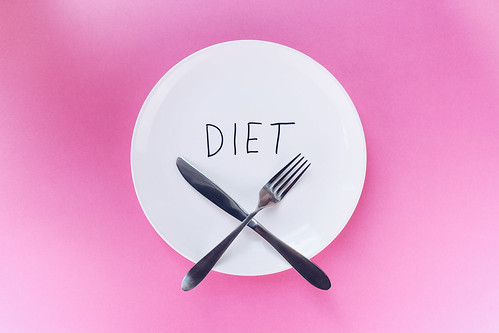What is the Keto Diet?
The “Keto Diet” has received great attention in recent years. Ketogenic diet typically follows a high fat, moderate protein, and low carb regimen. Though this diet has gained recent attention, the use of low-carb diets is nothing new in healthcare. Low-carb diets have been used for decades to manage other illnesses such as better management of seizures in epilepsy patients.
Low carb diet VS normal healthy diet
- Low Carb Diet = 5-10% of calories from carbs and 75% of calories from fats
- Normal healthy diet = 45-65% of calories from carbs and 20-35% of calories from fats
Pros and Cons of Keto Diets
- Pros
- Quick weight loss
- Improvement with insulin resistance
- More appealing meal choices
- Cons
- No long-term sustainability.
- Increased risk of hypoglycemia
- Nutritional deficits
- Longterm affects to kidneys and heart
- Keto-flu
What are the studies showing?
- A study conducted by Sudhakaran et al (2020) studied the relationship between long QT syndrome (LQTS) triggered by ketogenic diet.
- 43-year-old women with congenital LQTS and implantable cardioverter-defibrillator (ICD) has been asymptomatic of shocks for the past six years leading to the discontinuation of all antiarrhythmic interventions.
- Upon the start of the ketogenic diet, she received four shocks for recurrent TdP within three weeks’ time. Her shocks were assessed, and they were noted to occur under situations of stress.
- She was hospitalized, put back on antiarrhythmics until she stabilized. Once discharged, she was educated to stop the ketogenic diet and to be reassessed the following month.
- Upon assessment of ICD device, no shocks were noted. She continued to remain shock free for the following six months.
- Choi, Young, and Chartier media journalist at the University of Toronto studied the uncommon correlation between ketogenic diet and pancreatitis.
- This study followed a 35-year-old male who follow ketogenic diet and was hospitalized for weekly occurrences of abdominal pain.
- Throughout the hospital admission, it was noted he experienced relief during the weekends. Upon further assessment it was noted that the weekends were also days that the patient considered “cheat days” and didn’t follow the ketogenic diet.
- Upon discharge, he terminated the ketogenic diet and remained free of episodes for the following six months.
- After further evaluation, six other studies followed seven cases where acute pancreatitis was present with ketogenic diet, but all occurred with normal or near-normal triglyceride levels.
Conclusion
So, the big question is – how safe is the ketogenic diet? Ultimately the answer to this is not a simply yes or no. Media today is quick to push the benefits of the newest fad diet by boasting about the “rapid weight loss” but any individual contemplating the diet should hear the good and the bad and then make the best choice for themselves.
Whether to choose a ketogenic diet or not is an individualized decision. This diet choice is not a great option for everyone. Will you lose weight quicky? Yes. Is this sustainable long term? No ideally. Are there risks to this diet? Yes. So ultimately, do your research and always talk to your healthcare provider when considering different diet choices!
Jain et al. (2020) studied younger adults’ perception and knowledge the ketogenic diet. The study surveyed 240 students between the ages of 18-25. Results showed 64.9% weren’t aware of the ketogenic diet but believed it was beneficial for bodybuilding and weight loss while 51.2% weren’t aware of any potential benefits. The main purpose of the study was to raise awareness of the need for individuals to be fully aware of what the diet is, its risks and benefits. According to Jain et al. (2020), “The findings of the survey also point to the same problem as many respondents said that they know about the ketogenic diet but very few could actually answer correctly about its effects on our body” (p. 171). Diets and their processes and impact on the body need to be fully understood before they are implemented.
References
Choi, J., Young, T. L., & Chartier, L. B. (2021). Recurrent acute pancreatitis during a ketogenic diet—a case report and literature review. International Journal of Emergency Medicine, 14(1), 1–5. https://doi-org.ezproxy.neit.edu/10.1186/s12245-021-00374-5
Jain, M., Singhla, J., Kapoor, H., Panda, H., Kumar, M., & Goyal, A. (2020). Exploring the perception about Ketogenic Diet among young adults. Indian Journal of Health & Wellbeing, 11(4–6), 168–172.
Killion, MS RDN, CDCES, H. (n.d.). Keto Diet Pros and Cons: A Registered Dietitian’s Perspective. Diabetes from the Group Up, LLC. Retrieved July 5, 2021, from https://diabetesfromthegroundup.com/keto-diet-pros-and-cons/
Sudhakaran, S., Yazdani, L., Wheelan, K. R., & Rao, P. K. (2020). The ketogenic diet and the QT interval. Baylor University Medical Center Proceedings, 33(1), 77–79. https://doi-org.ezproxy.neit.edu/10.1080/08998280.2019.1664220

